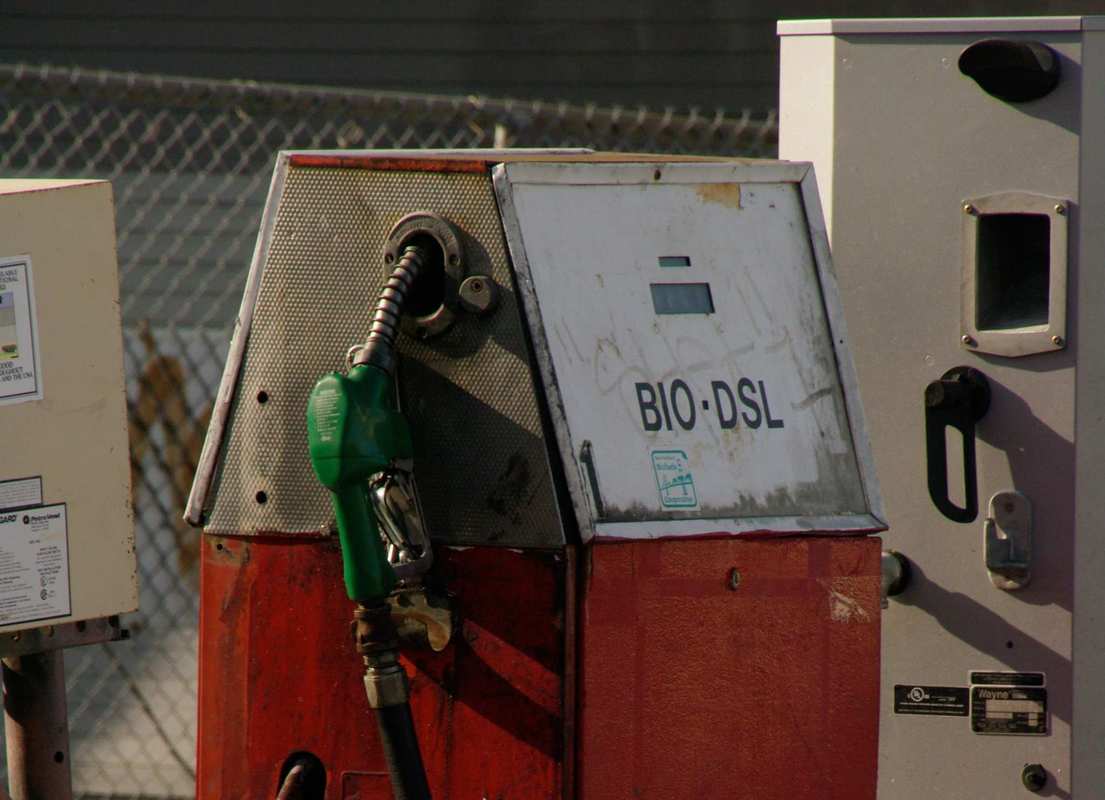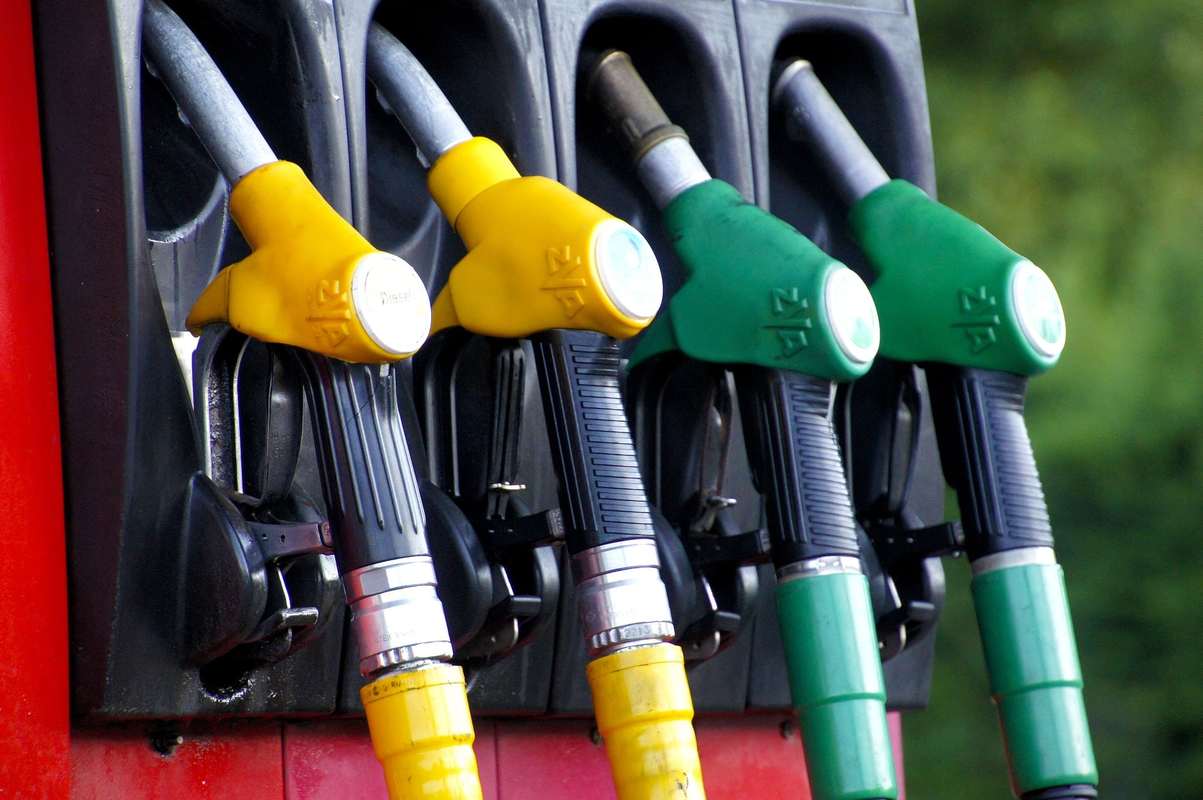Source: ministryofhemp.com
After legalization, hemp biofuel could be a key part of reducing our dependence on fossil fuels.
Fuel is everything. America would not be the hyper-efficient economy it is today without something to power our cars, computers, and our Roomba vacuum cleaners. We would be nothing but Neolithic farmers without our electricity and gasoline. But, anything that is truly valuable always comes at a price. Traditional fuel sources hurt the environment, and they’re running out. Air pollution from processing fossil fuels harms the troposphere, and indirectly depletes ozone from our atmosphere. The price for hyper efficiency is evident, which is why alternative fuel sources are becoming so important. Today we focus on a fuel source that hits close to home. That alternative is hemp biofuel.

A biodisel fuel pump at a filling station. Biodiesel is one very appealing option for hemp biofuel.
The cannabis plant is the gift that keeps on givin’. This magic plant gives us CBD oil, THC, hemp fibers and even fuel! Researchers have made hemp into two types of biofuel: biodiesel and ethanol.
HEMP BIODISEL
Biodiesel is produced by the pressing of hemp seeds to extract their oils & fats. After the extraction, the product is then put through more steps to make it into a usable hemp biofuel for your car. If you’re curious to learn about the specifics of biodiesel production, the process is thoroughly explained by hemp.com.
The argument for hemp-derived biodiesel comes down to convenience. If processed correctly, biodiesel can be put into any diesel-powered automobiles. It can be stored and transported like diesel, so there isn’t a need to create a new system for transportation. It even replaces the smell of traditional diesel with the smell of hemp.
USING HEMP TO MAKE ETHANOL
Ethanol is traditionally made from wheat-based crops such as corn and barley. It’s traditionally used as an additive to gasoline, which gave way to our “flex-fuel” vehicles of today. Hemp can be made into ethanol by various forms of fermentation. Using hemp as the main source of ethanol, instead of food crops like wheat & corn has clear advantages. Not using food crops as a fuel source allows more efficiency in food production, and hemp can be grown in lower quality conditions unlike corn or wheat. Hemp-derived ethanol also shares the advantages of transportation and usability as biodiesel.

A row of yellow and green fuel pumps. Hemp biofuel could present more sustainable alternatives to fossil fuels in the near future.
HEMP BIOFUEL OFFERS A MORE SUSTAINABLE ALTERNATIVE
Fuel alternatives like this can seem like a no-brainer to replace our traditional fossil-fuel sources, but there are drawbacks to these alternative techniques.
To set up a large-scale industrial hemp farm, you will experience the same ethical dilemmas that the farming industry faces. Deforestation and pesticide use will increase, and we’ll inevitably replace some of our food-crop land with more hemp-crop land. Farmers can grow hemp biofuel on land that is not fit for other crops. This “marginal land” is essentially land that isn’t tilled and cleared out for farming. Despite the versatility, hemp produces a much bigger harvest in ideal farming settings. Additionally, marginal land is actually home to important plants, trees, and living creatures that are vital to the ecosystem. Read “Is Hemp The Best Biofuel?” from sensiseeds.comfor a more in-depth look into the argument for hemp biofuel.
Clearly, hemp biofuel alone won’t solve our environmental crisis, but we believe it could be part of a transition to a cleaner way of living.
HOW THE AUTO-INDUSTRY ALREADY USES HEMP
While hemp biofuel may not be a popular ralternative just yet, the automotive industry already uses hemp. Automakers weave hemp plastic into a bendable material similar to fiberglass. Almost all European car makers use hemp fibers as interior door panels and trim pieces. And companies like FlexForm technologies operate as a dedicated producer of hemp-fiberglass that they sell to automotive companies to be made into car doors and exterior panels. Cars that feature hemp-based materials include the BMW i8 supercar and the Lotus Evora. The advantages that come with hemp-made materials is that they are lighter, bio-degradable, and comes from a much easier renewable resource. Hemp grows in roughly 3 months while metals take thousands of years to form.
Thanks to continued bipartisan support for hemp legalization paired with a culture that is growing increasingly accepting of the cannabis plant, we’re witnessing the beginning of hemp revolution. While hemp biofuel can’t solve the entire energy crisis (we believe the answer to that problem will require multiple solutions), it can provide us with a great renewable fuel source in addition to it’s already useful applications.
While we spent our time here discussing hemp biofuel, let’s not forget the other ways people have been using hemp. There’s hemp beer, hemp blankets, and, this reporter’s personal favorite, hemp food! The future is indeed green.
No comments:
Post a Comment